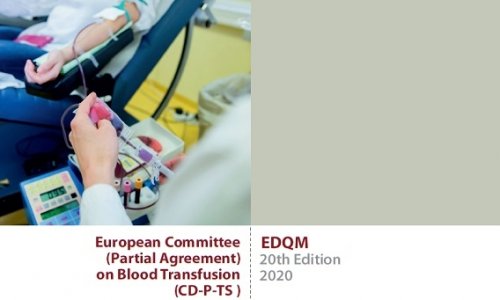Image source: allinonemovie from Pixabay
News • Experts express concerns
EDQM Blood Guide could make Europe more dependent on US plasma
The Plasma Protein Therapeutics Association (PPTA) is concerned about the recommendations contained in 20th version of Blood Guide of The European Directorate for the Quality of Medicines (EDQM) which aims to harmonise standards and recommendations on blood collection, preparation, and the use of blood and blood components.
This Guide, if applied, will have a negative impact on the availability of plasma to develop Plasma-Derived Medicinal Products (PDMPs) for European patients as it fails to distinguish between requirements for transfusable blood components and plasma for manufacturing, especially concerning donor deferrals.
The updated donor selection criteria in the EDQM Blood Guide, which have no scientific backbone, will [...] weaken any efforts aiming to ensure European autonomy on plasma
Maarten Van Baelen
Around 300,000 European patients1 rely on PDMPs to treat a variety of rare and chronic and/or genetic diseases and serious, often life-threatening medical conditions.2 For individuals with these conditions, PDMPs replace their missing or deficient proteins. Without these treatments, many patients would either not be able to survive or would have a substantially diminished quality of life and productivity.
The availability of PDMPs is reliant on enough plasma being collected and manufactured into these lifesaving therapies. The Plasma needed for manufacturing is acquired through whole blood donation (recovered plasma) or through plasma donation in a process called plasmapheresis (source plasma). National blood services in Europe collect only a marginal amount of plasma needed for manufacturing therapies, and currently Europe remains reliant on the U.S. for around 35% of its plasma. Today, just four European countries (Austria, Czech Republic, Germany and Hungary) contribute more than half of the total plasma collected in Europe by allowing the coexistence of publicly- and privately-owned collection centers and by compensating donors for their expenses and inconveniences related to the donation.
Recommended article

Article • A very special juice
The patient blood management concept
'Blood is a very special juice’ – something even Goethe’s Mephistopheles knew. Medics have also known this for centuries, so it’s nothing new that the ‘juice’ and its properties receive a lot of attention in medicine. However, what is new is that dealing with the use of blood through patient blood management (PBM) is coming to the fore.
“Whilst the COVID-19 pandemic has shown that Europe needs more strategic autonomy on medicines and their starting material, the updated donor selection criteria in the EDQM Blood Guide, which have no scientific backbone, will have the opposite effect, and weaken any efforts aiming to ensure European autonomy on plasma” remarked Maarten Van Baelen, Executive Director, PPTA Europe. “The distinction between plasma for fractionation and blood and labile components is crucial to create an environment which allows for the collection of sufficient plasma for fractionation in Europe (and world-wide). Donors who donate plasma for manufacturing PDMPs have different requirements than those who donate whole blood in terms of eligibility, testing requirements, and deferrals. In fact, Germany, which is the largest contributor to EU plasma collection, uses different criteria for collection of labile blood components when compared to collection of plasma, based on scientific evidence.”3,4
PPTA expresses once more concerns that its input, in bringing decades of experience in plasmapheresis and gathering scientific evidence, has not been considered. What is needed now is not only further dialogue with respect to transparency and stakeholder input, but a multi-stakeholder discussion on how to significantly enhance European plasma collection by all players, private sector included, to increase Europe’s contribution to the collection of plasma.
References
1 Vintura European White Paper on the value of plasma derived medicinal products and plasma, 2020
2 More patients across the European Union are diagnosed every year with life-threatening plasma protein related disorders, such as, immune deficiencies, immune-mediated peripheral neuropathies, Hereditary Angioedema, Alpha 1-Antitrypsin Deficiencies, and Hemophilia and other bleeding disorders. In many cases, PDMPs are the only treatment option for these rare diseases. New indications, improved diagnostic techniques, greater use in emerging markets, and an increased use in cancer treatment-induced secondary immunodeficiency are further contributing to the growing clinical need for PDMPs.
Source: Plasma Protein Therapeutics Association (PPTA)
29.05.2020





